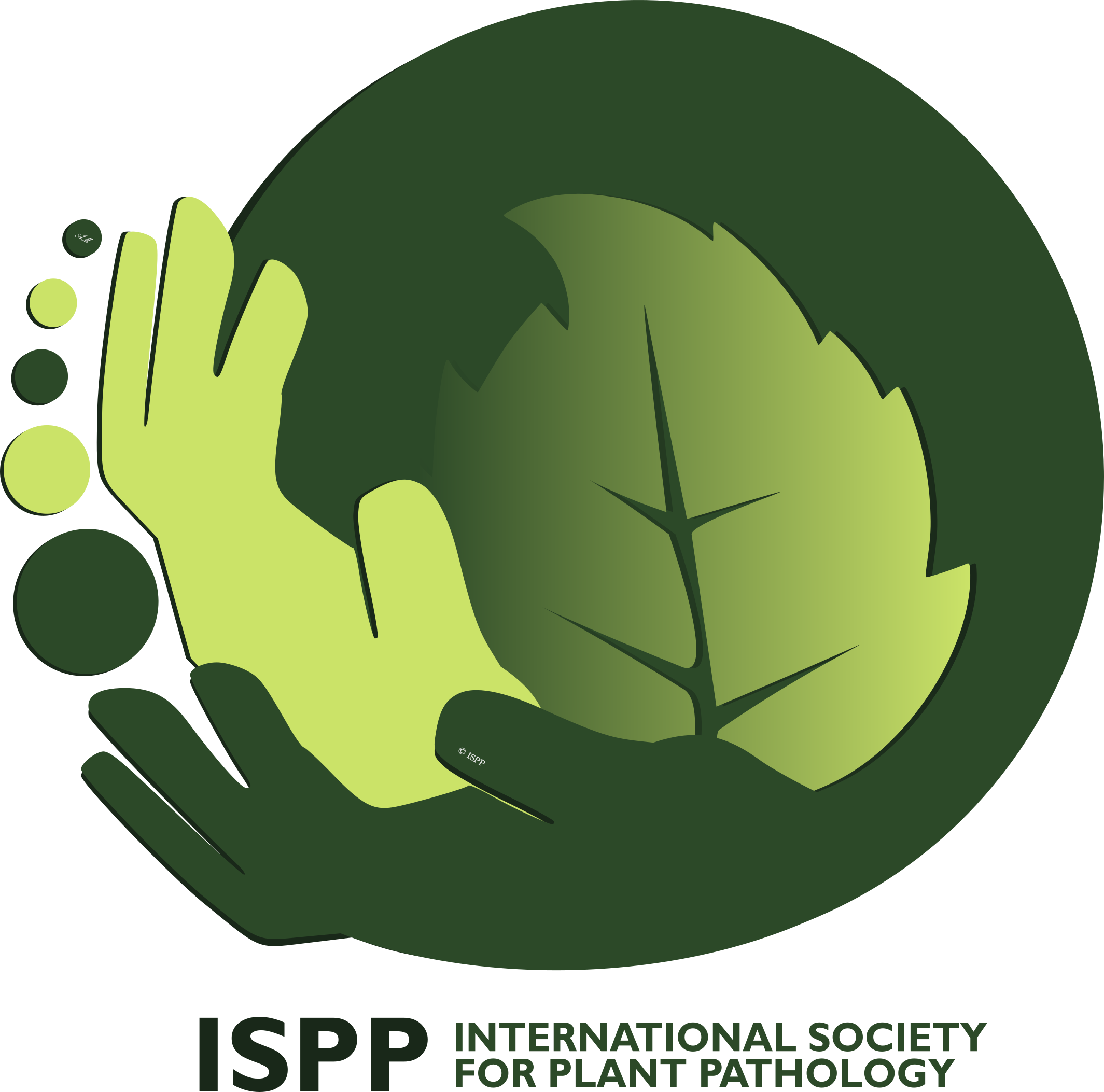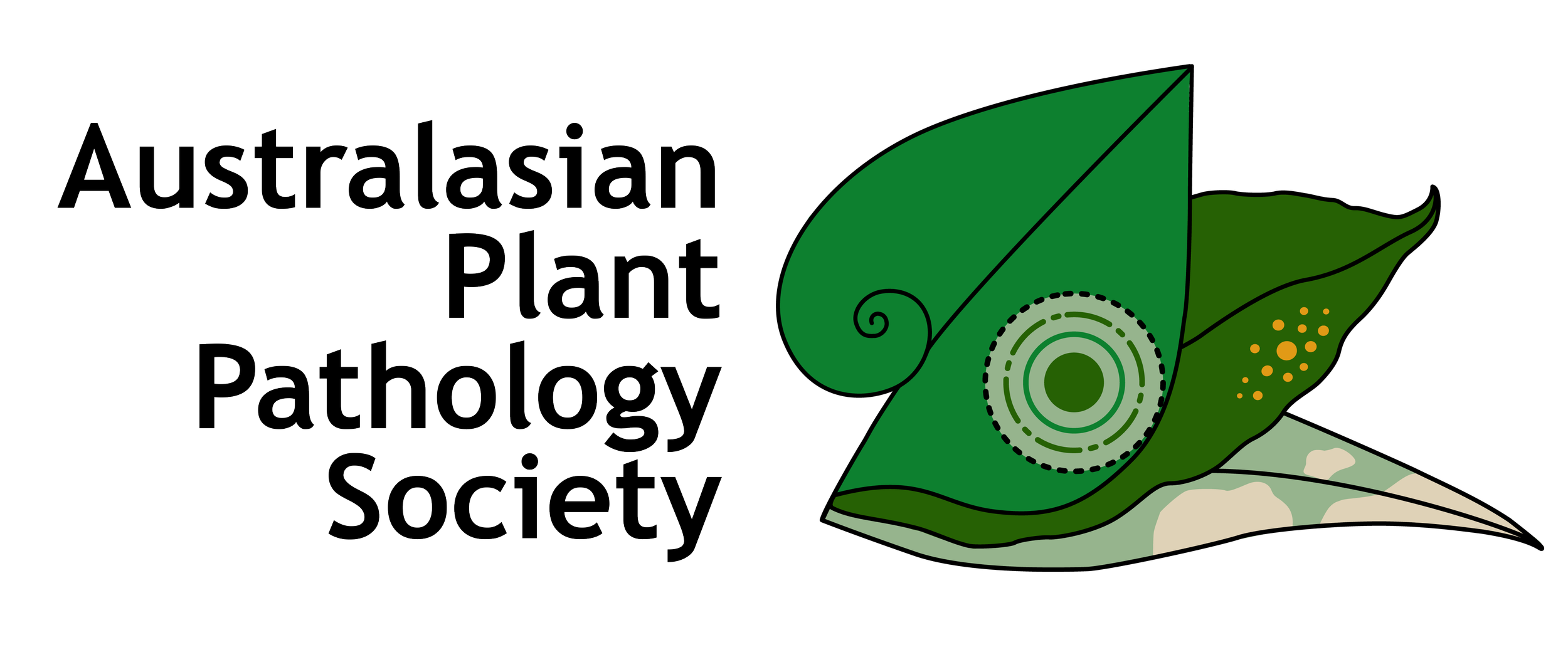About the ISPP
The International Society for Plant Pathology (founded in 1968) is a member of the International Union of Biological Sciences (IUBS), the International Union of Microbiological Societies (IUMS), in liaison with the UN Food and Agriculture Organization (FAO). The purpose of the ISPP is to promote the worldwide development of plant pathology, and the dissemination of knowledge about plant diseases and plant health management. The Society sponsors the International Congress of Plant Pathology (ICPP) at regular intervals and other international meetings on plant pathology and closely related subjects. The Society establishes committees to consider and report on special fields or problems in plant pathology. The Society organizes other activities including the publication of journals and newsletters, websites, as approved by the Executive Committee. The ISPP is incorporated under Minnesota USA Statute.The ISPP Council consists of the Executive Committee and Councilors nominated by Associated Societies (or by nominating bodies in countries with no society of plant pathology).
About the APPS
The Australasian Plant Pathology Society is dedicated to the advancement and dissemination of knowledge of plant pathology and its practice in the Australasian and Indo Pacific Regions. Although the society is concentrated in these areas the work of our members is of international importance and significance. see also governance
The Society, founded in 1969, has members that include research scientists, teachers, students, extension officers, administrators, diagnosticians, biosecurity and quarantine officers, policy makers, industry leaders and pest management personnel. The diversity of the society is also reflected in the extensive range of members' disciplines. These include Agronomy, Bacteriology, Biochemistry, Biocontrol, Biology, Biosecurity, Biotechnology, Botany, Breeding, Cell Biology, Crop Protection, Ecology, Epidemiology, Forestry, Genetics, Horticulture, Microbiology, Molecular Biology, Mycology, Nematology, Plant Pathology, Symbiosis, Taxonomy and Virology.
APPS publishes two scientific journals, Australasian Plant Pathology and Australasian Plant Disease Notes. In addition the society also publishes disease information in the Pathogen of the Month.
The Society supports education in science through the Advancing Plant Pathology Fund as well as the student and ECR bursary scheme. Outstanding contributions to the science of plant pathology are honoured with several distinguished awards.
Although the majority of our members are from Australasia, many are from other parts of the world. APPS has members from 45 countries across all continents.
Top reasons why you should be at ICPP 2028
01 — 2028 will be the first ICPP to be hosted in the tropics or subtropics
Take part in a range of technical and social tours and enjoy unique and educational experiences. The Gold Coast is surrounded by diverse sub-tropical horticultural crops, sugarcane fields, plantation and managed native forests, and ancient rainforests. A little further afield, there are broad-acre cereal, pulse legume, oilseed and cotton crops, and pome and stone fruit orchards and vineyards.
02 — World’s Largest Congress on Plant Pathology
In 2028 we are expecting to see over 2,000 plant pathologists from over 80 countries converge on the Gold Coast, creating a truly global interaction between academia and industry, with a commitment to supporting PhD students and early and mid-career scientists from developing countries to attend the Congress pledged.
03 — Opportunity to learn and explore bold and novel subject areas
Expect symposia and satellite meetings exploring areas such as utilisation of indigenous knowledge in plant protection, practical plant protection solutions for developing countries and the impact of exotic plant pathogens on natural environments.
04 — Famous Australian hospitality in a vibrant, safe and accessible destination
Attendees will experience exclusive use of a compact uncrowded conference precinct in the Gold Coast where attendees can walk within 5 minutes to over 100 cafes and restaurants, and one of the best beaches in the world. With many networking opportunities - including organised beach walks and yoga classes and a diverse family friendly social program and complimentary ‘kids club’ - you will feel welcomed and supported by true Aussie hospitality from the moment you arrive.


